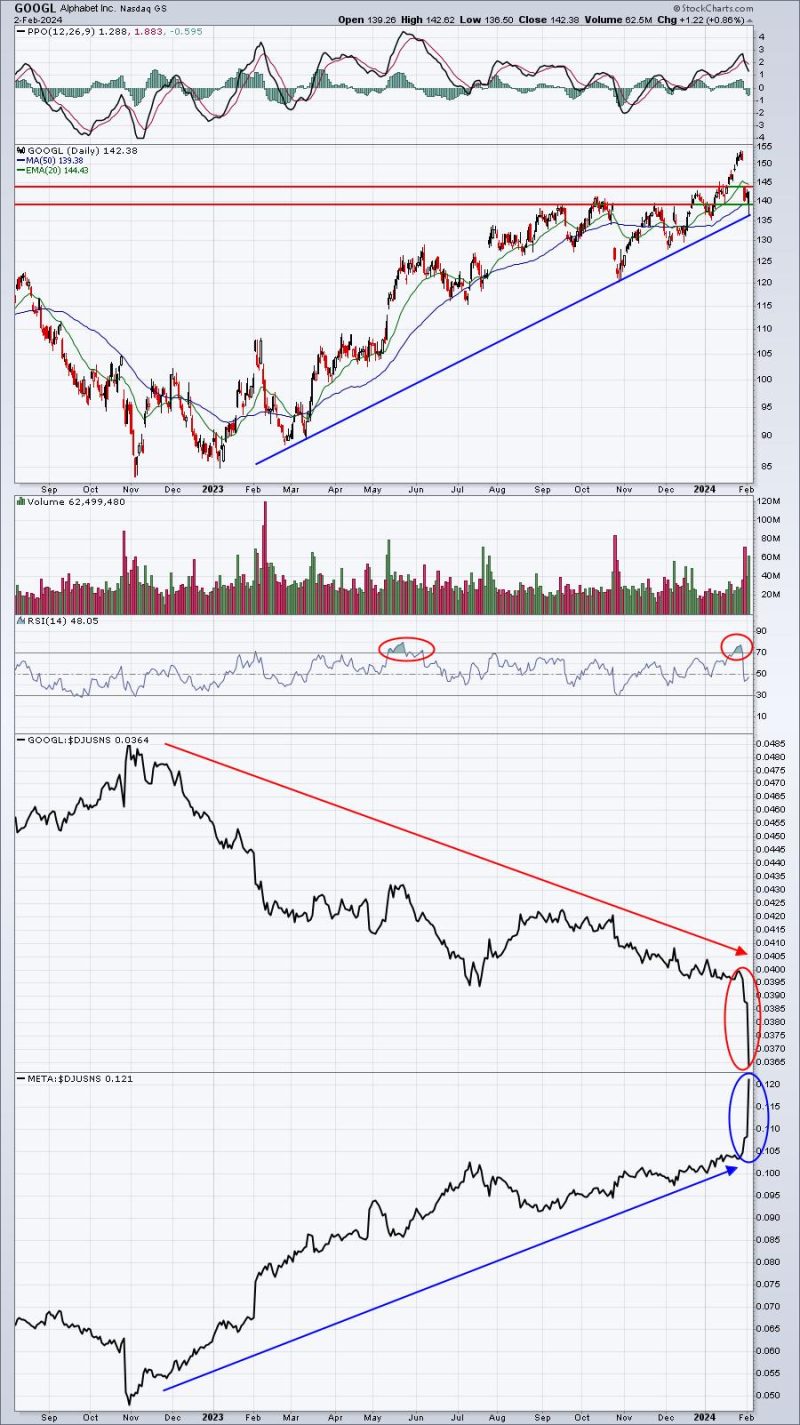Link between Relative Strength and the Perception of Google’s Stock
Relative strength, a technical indicator commonly used in the world of investing, measures the price performance of a stock relative to the overall market. This metric can sometimes shed light on the market’s perception of a particular stock. In the case of Google (GOOGL), its relative strength has shown it to be an unloved stock. This article will explore the reasons behind this perception and analyze whether it is justified.
Relative strength compares a stock’s price performance to a benchmark index, such as the S&P 500. A relative strength value above 1 suggests that a stock is outperforming the market, while a value below 1 indicates underperformance. By examining these values over time, investors can identify trends in market sentiment towards a particular stock.
In the case of Google, its relative strength value has consistently fallen below 1 over the past few months. This suggests that the market has been less enthusiastic about Google compared to the overall market. Several factors contribute to this sentiment.
Firstly, there is increasing concern among investors about Google’s dominance in the online advertising space. The company relies heavily on ad revenues, and any threats to its advertising model could have a significant impact on its profitability. This concern has been further exacerbated by antitrust investigations in various countries, which could potentially lead to stricter regulations or even breakups.
Moreover, Google has faced criticism for its handling of user data and privacy issues. In an era where data protection has become a global concern, the company’s practices have come under scrutiny. Increased awareness of privacy concerns has led consumers to adopt privacy-focused alternatives, which could potentially erode Google’s market share in the long term.
Another factor that has contributed to the perception of Google as an unloved stock is the increasing competition it faces. Rival companies, such as Amazon and Microsoft, have been making significant strides in the cloud computing market, which is a key focus area for Google. The market’s perception is that Google may struggle to maintain its competitive edge in this rapidly evolving space.
Furthermore, Google’s recent financial performance has not met market expectations. The company reported a decline in revenue growth in its most recent earnings report, which led to a significant drop in its stock price. This lackluster performance has raised concerns about the company’s ability to sustain its growth trajectory.
While the market’s perception of Google as an unloved stock is understandable based on the factors mentioned above, it is important to consider the potential upside as well. The company still holds a dominant position in various markets, including search engines, online advertising, and mobile operating systems. Google continues to innovate and diversify its revenue streams with new ventures such as Waymo, its self-driving car subsidiary.
Additionally, the company’s strong balance sheet, consisting of a large cash reserve, provides it with the means to navigate through any challenges that may arise. Google has a track record of successfully adapting to market changes and remains a leader in the technology industry.
In conclusion, the relative strength indicator has highlighted Google as an unloved stock, mainly due to concerns regarding its advertising model, data privacy issues, increasing competition, and recent financial performance. However, it is important to take a balanced view and consider the company’s strengths and potential for innovation. As with any investment, thorough research and analysis are crucial in making informed decisions.

